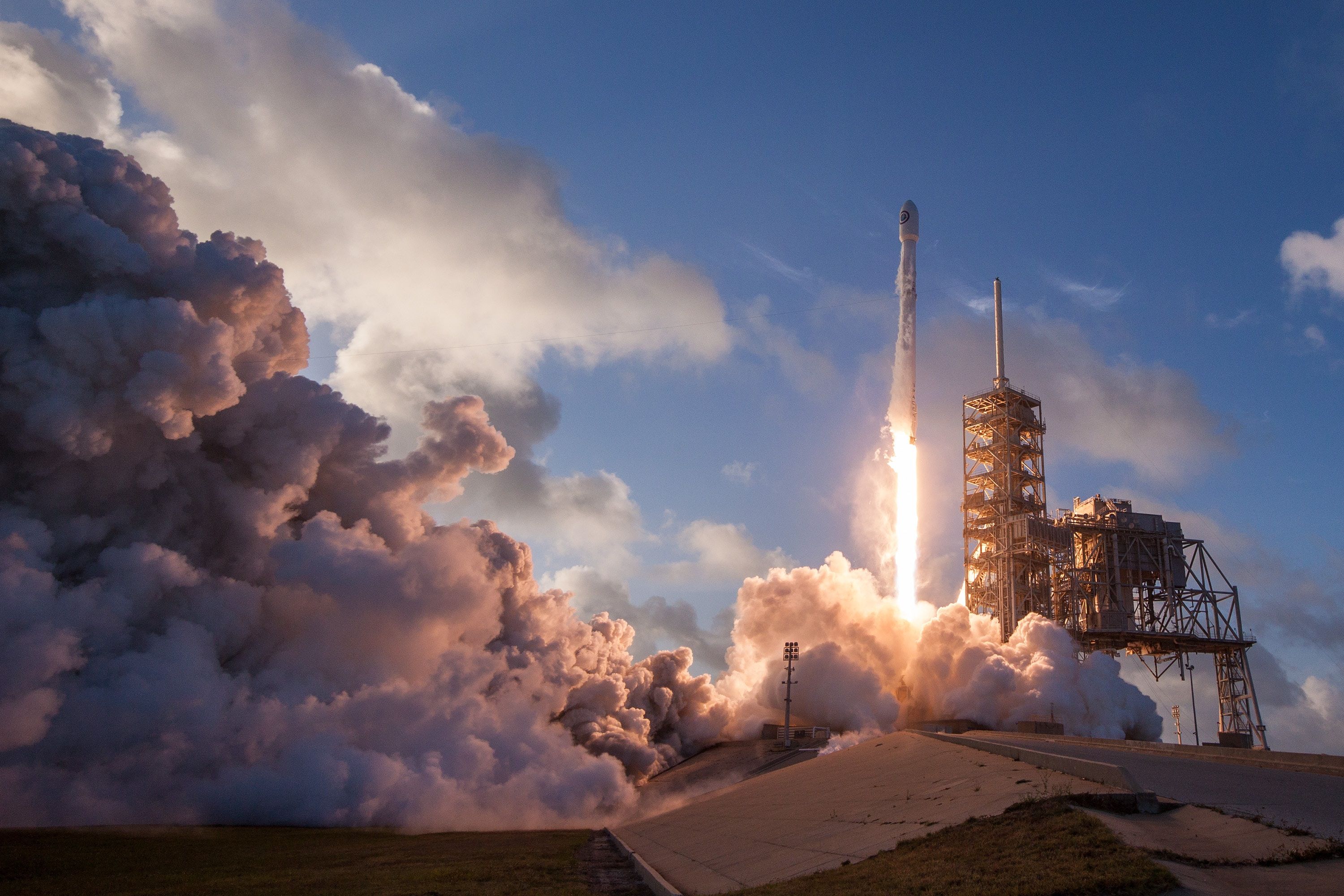Elon Musk and the future of space travel
From Stephen Hawking and the Breakthrough Initiative building probes to visit Alpha Centauri, to the endless discovery of exoplanets in the habitable zone orbiting distant stars, one thing is clear: space is back in fashion. Nonetheless, Elon Musk, CEO of SpaceX and Tesla, and a man noted by The Guardian to be a real-life Tony Stark, turned heads all over the world when he strapped his own Tesla car to a rocket and fired it into space. Yes, you read that right.
With some seeing humanity’s next great age of exploration on the horizon, it comes as a little surprise that Musk has joined the race to get us to the stars. Musk is known for being a dreamer amongst space enthusiasts, with goals to start colonising Mars by 2022. However, his rocket the Falcon Heavy, is much more than a dream. As the most powerful space vehicle since the shuttle, the test launch at the Kennedy Space Centre in Florida was labelled risky at best, with only a 50-50 chance of success. “I had this image of just a giant explosion on the pad, a wheel bouncing down the road,” Musk told reporters after Falcon Heavy completed its flight over the Atlantic, now the most capable launch vehicle in the world today. Incredibly, the next most powerful rocket, the Delta IV Heavy, operates at three times the cost, but can only carry half the Falcon’s maximum payload of 64 tonnes to low-Earth orbit. For the launch though, the Heavy Falcon only carried a space-suited mannequin in the driver’s seat of Musk’s beloved car, which is now drifting towards Mars’ orbit while listening to a David Bowie playlist until the end of time.
The test launch at the Kennedy Space Centre in Florida was labelled risky at best
Alas, not all components of the test launched met such a happy ending. The Falcon Heavy is made up of three separate vehicles strapped together, with one failing to complete a successful landing and crashing at 500km/h in the sea off Florida. There’s still plenty of time for things to go wrong for the mannequin and its car too, with the final ignition designed to take it closer to Mars not due for some six months.
Regardless of what happens though, the Falcon Heavy is already a massive success, opening the doors to a myriad of opportunities for the SpaceX company and solidifying their position as one of the significant forces in space exploration. Given that launch vehicle performance limits satellite size, the existence of this new technology presents the possibility of more substantial spacecraft entering our orbit and reaching places beyond, and in higher numbers too. Notably, these could be used to launch telescopes that will succeed the James Webb telescope due to be sent into space next year, but only after being folded up to fit inside its launcher. One proposition Musk himself made is the idea of launching thousands of satellites capable of delivering broadband globally. Certainly, the most important facet of the Falcon is its low operating cost. Via recovering and reusing boosters, the Falcon Heavy has been compared to modern day aircrafts, in that the launchers are no longer limited to a single use, which Musk believes to be a game-changer in the rocket industry.
One proposition Musk himself made is the idea of launching thousands of satellites capable of delivering broadband globally
Before he goes revolutionising space exploration some more, Musk has his hands full for 2018. Two more Falcon Heavy missions are planned for this year, as well as smaller Falcon 9 missions for NASA. SpaceX’s Dragon cargo ships are expected to deliver supplies to the International Space Station, with a crewed version of the Dragon under construction with the intention of flying NASA’s astronauts. A test flight for the new Dragon, using a Falcon 9 rocket, is scheduled in the coming months. With all these plans ready to become breakthroughs, maybe we should all take Musk a little more seriously, and perhaps his dreams to colonise Mars are on their way to reality. He has to get a million people off the ground somehow, after all.

Comments (3)